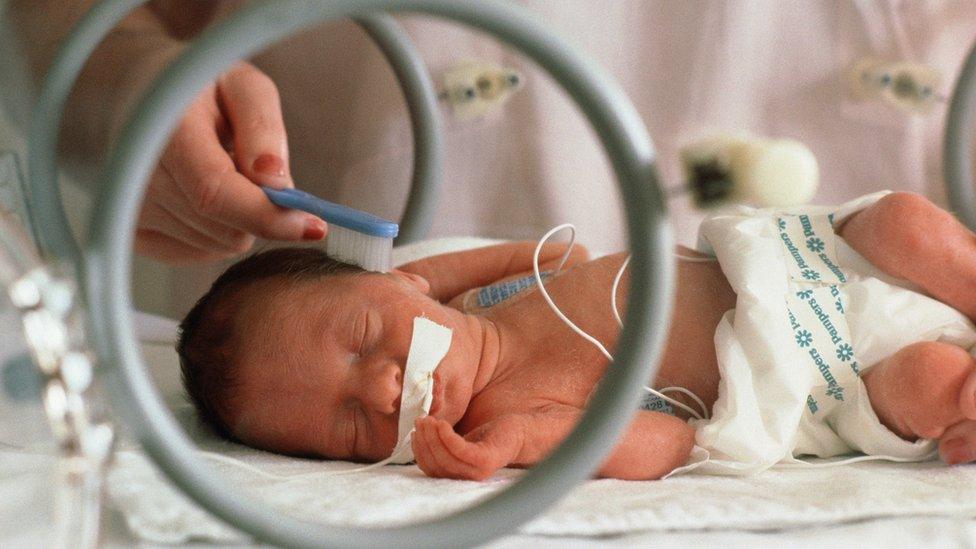Premature babies' care 'understaffed and under pressure', says report
- Published

Neonatal services in England, which provide care to sick or premature babies, are overstretched and understaffed, according to a report by the charity Bliss.
It found that 64% of neonatal units do not have enough nurses and 70% of intensive care units are caring for more babies than is safe.
The charity called for urgent action to provide the resources needed.
NHS England said neonatal care was on a par with other European countries.
One in nine babies in England needs neonatal care.
In 2009 the government set out a plan for how neonatal services should be organised and delivered, but in the six years since then Bliss says nothing has changed.
In its report it said 2,140 more nurses are needed to meet the standards set out in the plan. At present, two-thirds of units do not have enough nurses or doctors because of a severe lack of funding.
With two out of three neonatal intensive care units looking after more babies than is safe - babies are being put at risk, the report said.
And 41% of units do not provide parents of premature babies with a trained mental health worker to support them.
The charity also noted that a third of units were unable to provide overnight accommodation for parents of ill babies or those living far from the hospital.
Increasing demand
Caroline Davey, chief executive of Bliss, said: "This must be a wake-up call for policymakers and healthcare commissioners to take action. If serious investment is not made, services will be facing a crisis in years to come.
"It needs to be addressed as a matter of urgency, so that every baby has the best possible chance of survival and of having a full and healthy life."
There are 161 neonatal units across England and the Bliss report, Hanging in the Balance, is based on the information provided by 101 of them.
The demand for neonatal care is thought to be rising because of increases in fertility rates, the availability of assisted conception and increases in survival rates for very premature babies.
A spokesman for NHS England said standards of neonatal care were on a par with other European countries, despite increasing demand.
"We will consider the recommendations of the report and continue to work closely with Bliss and others to improve neonatal services, ensuring every premature or sick baby receives the best possible care."
A spokesperson for the Royal College of Obstetricians and Gynaecologists said the findings of the report were "extremely concerning".
"Stretched and understaffed services affect the quality and safety of care provided to both mothers and babies. Patient care and safety underpin everything we do and long-term investment is needed to ensure healthcare professionals can deliver a high-quality service to all of their patients."